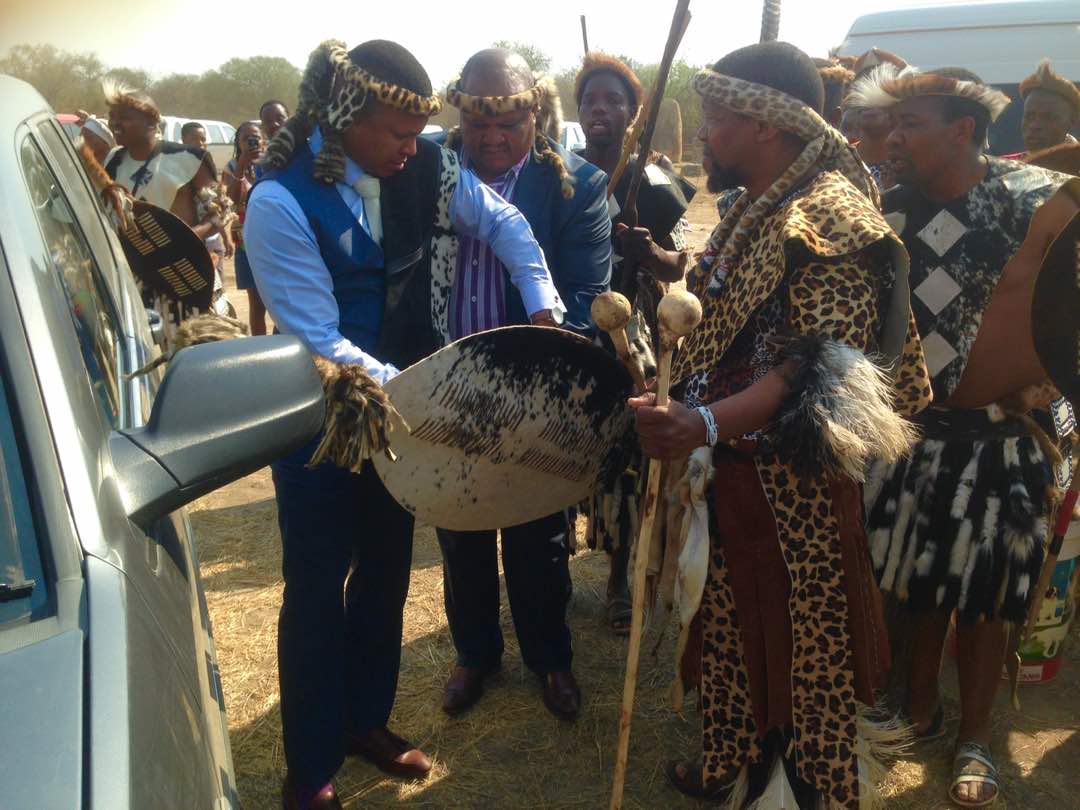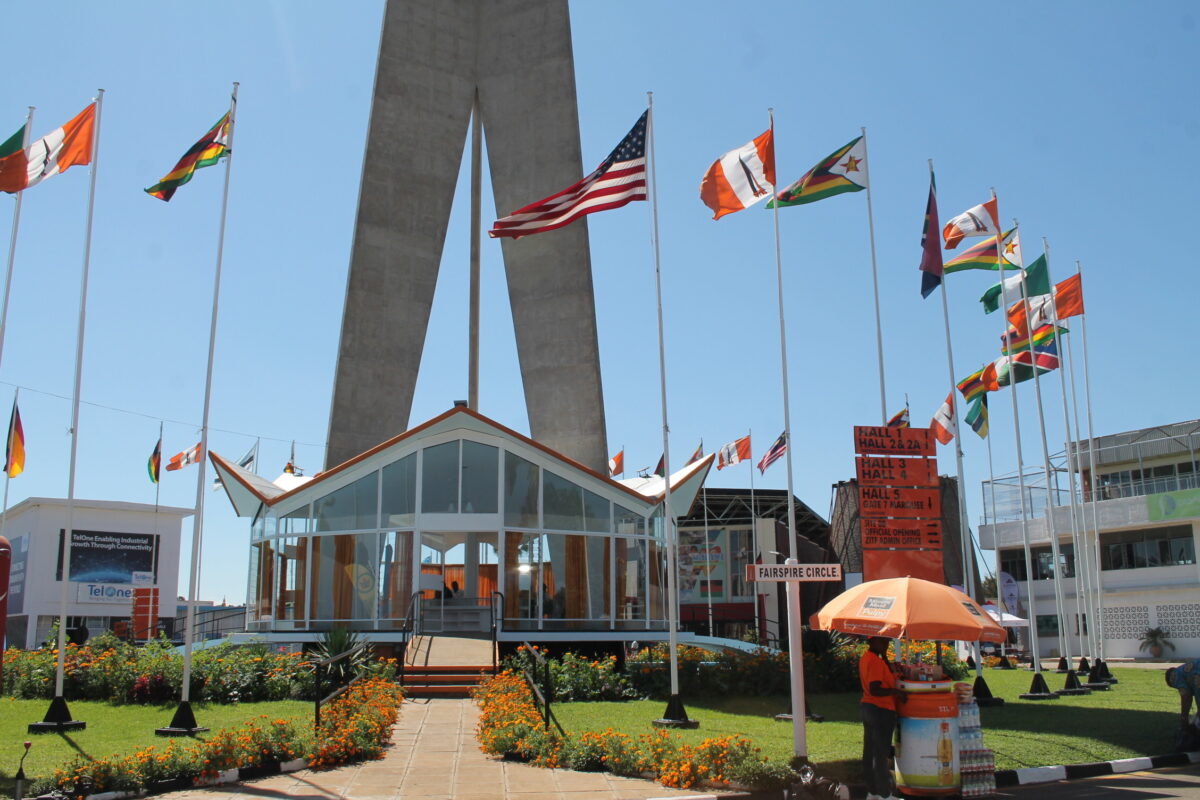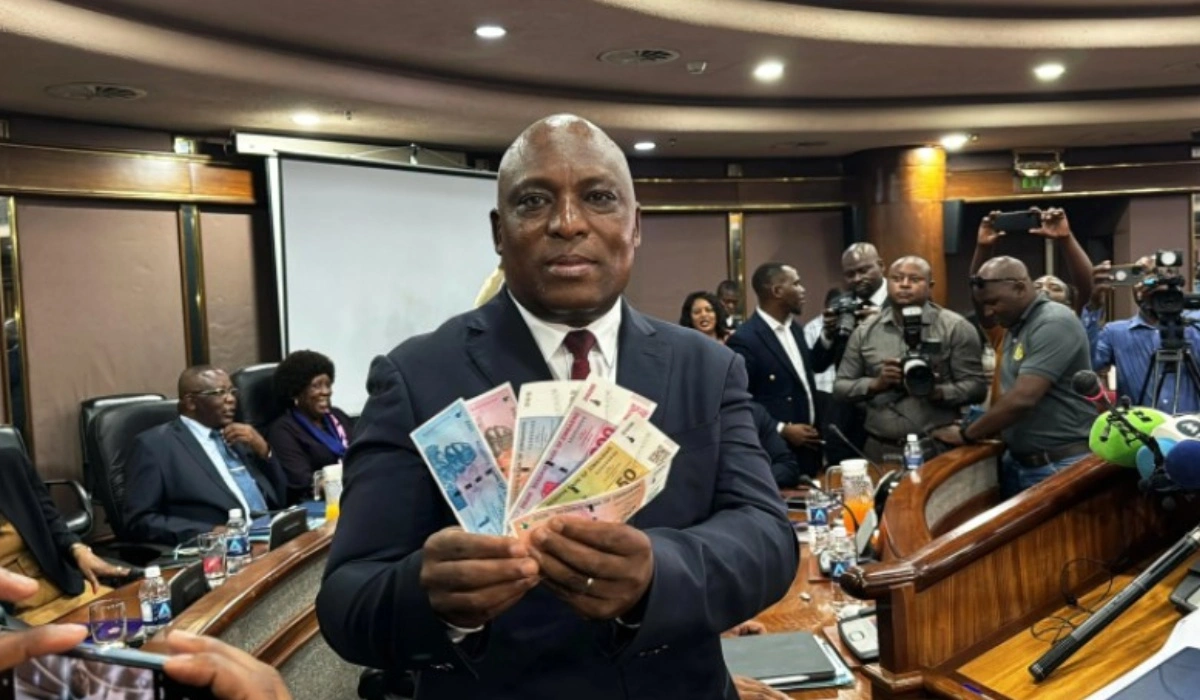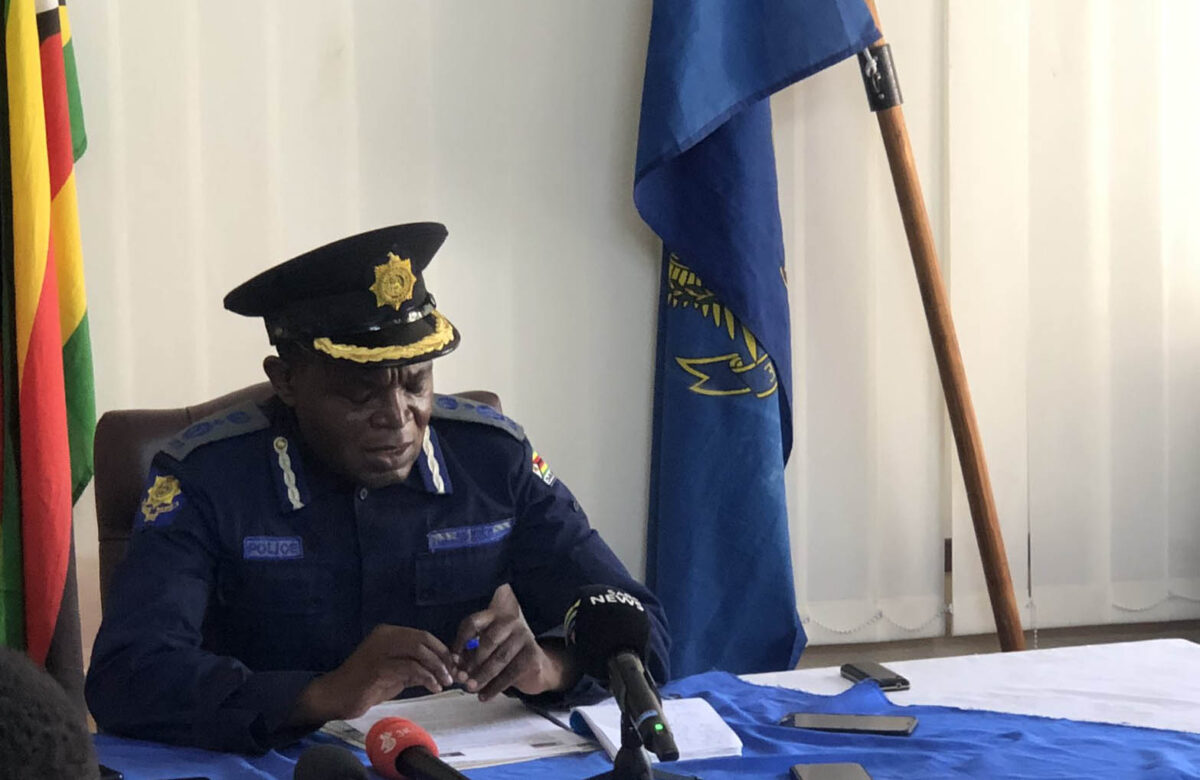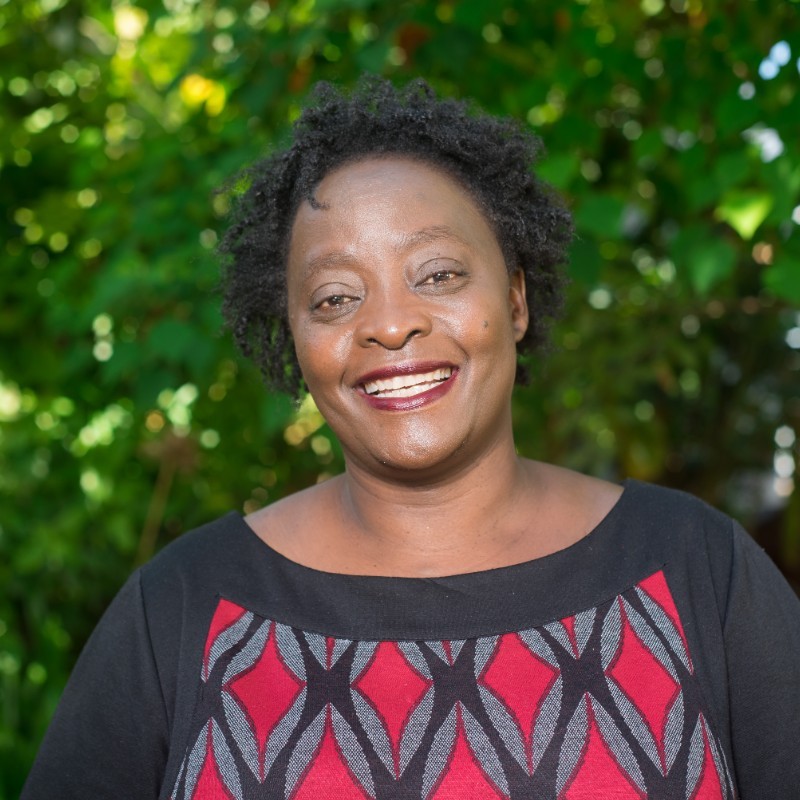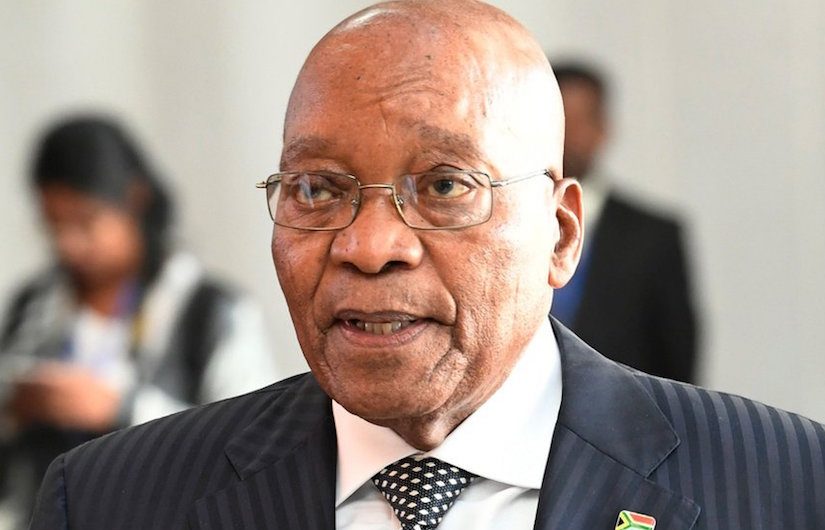BULAWAYO – Habemus Rex! We Have a King!
Traditional leaders in Matabeleland and the royal Khumalo family have crowned a new King of the Ndebele nation in a secret ceremony.
Bulelani Lobengula Khumalo, who is 33-years-old, went through a series of rites held across seven days before he was installed on September 28, according to Chief Felix Ndiweni, who attended the event in Bulawayo.
The coronation was originally set to be held on March 3, but Local Government Minister July Moyo said it would be illegal.
Bulawayo High Court judge Martin Makonese said he could not set aside Moyo’s order because there was “no relevant constitutional provisions for the coronation of a King in Zimbabwe.”
Makonese has yet to release his written judgment which would allow Chief Mathema of the Royal Crown Trust, who had challenged Moyo’s ban, to appeal the ruling.
Now it seems the patience of the royal family and traditional leaders – who insist their actions are constitutional – has finally run out.
Last Saturday, the new King was introduced to a carefully selected group at Mhlahlandlela, 22km outside Bulawayo on Old Gwanda Road during annual commemorations of Ndebele nation founder, King Mzilikazi.
Chief Ndiweni told the gathered people to chant “Bayethe!” (Hail to the King) as a way of announcing the King’s presence.
“I’m happy to reveal to you that we now have a King. We installed Bulelani Lobengula Khumalo on Friday, September 28, at 6.15PM. Please spread the word that the nation of Matshobana is now up, alive and well,” Chief Ndiweni said to loud cheers.
“This is an aspiration we had early on in the year when we witnessed a travesty of justice whereby our choice of a monarch was interdicted and yet at that very same time there were actually two reigning monarchs in Zimbabwe, Peter Zwide Khumalo and Stanley Raphael Khumalo,” he said.
Both Zwide and Stanely have declared themselves King, claiming to be the rightful heirs of the Ndebele throne. But chiefs in Matabeleland and a large majority of the Khumalo royal family – including those in South Africa – have embraced Bulelani.
Chief Ndiweni said they had to conduct the ceremony in secrecy to stop government authorities from causing disruption.
“We’ve been patient throughout this whole period (legal process). It’s incredible that a judge can give a verdict of a trial and yet not write up that verdict for six to seven months, that’s a travesty of justice,” he said.
Chief Ndiweni insisted that Section 280 of the Zimbabwe Constitution recognised the role of traditional leaders, and the new King was one such traditional leader.
The new Ndebele King Bulelani Lobengula, corronated in secrecy by traditional chiefs and the Khumalo royal family pic.twitter.com/7WD2otZ1b9
— ZimLive (@zimlive) October 1, 2018
The constitution provides that: “A traditional leader is responsible for performing the cultural, customary and traditional functions of a chief, headperson or village head, as the case may be, for his or her community.”
“We say in our culture that “izinduna ngezenkosi” (chiefs belong to the King). You can’t have chiefs without a king. As a chief, I would like to see monarchs all over Zimbabwe because as far as I’m concerned, the minute you say there are 16 official languages that means there are 16 nations in Zimbabwe,” the British-educated Chief Ndiweni said.
“Zimbabwe is a nation of nations so the idea that has been coming from the government that we are uniform is incredibly offensive and against the African ethos. Otherwise, if I were to believe what they were saying, what was the war of independence about?
“If I can’t walk down the streets of Bulawayo saying Bayethe! to Bulelani, for heaven’s sake what was the war about because that is what the Europeans stopped us from doing.”
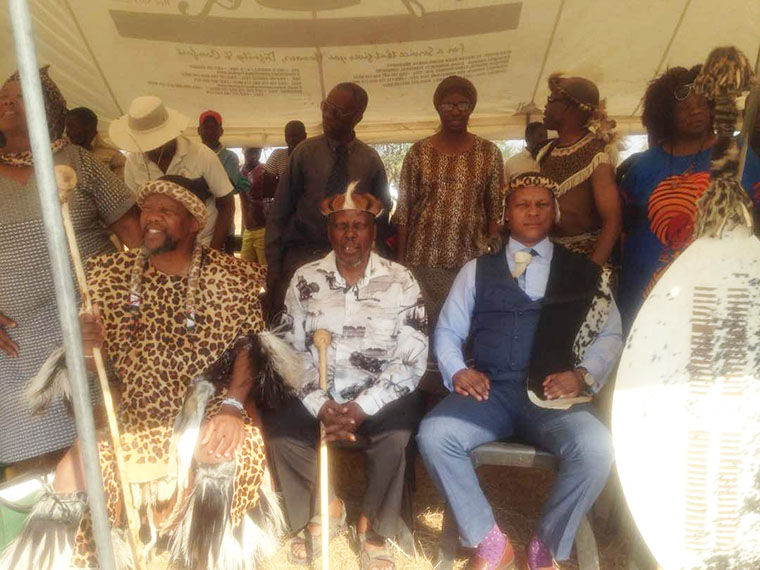
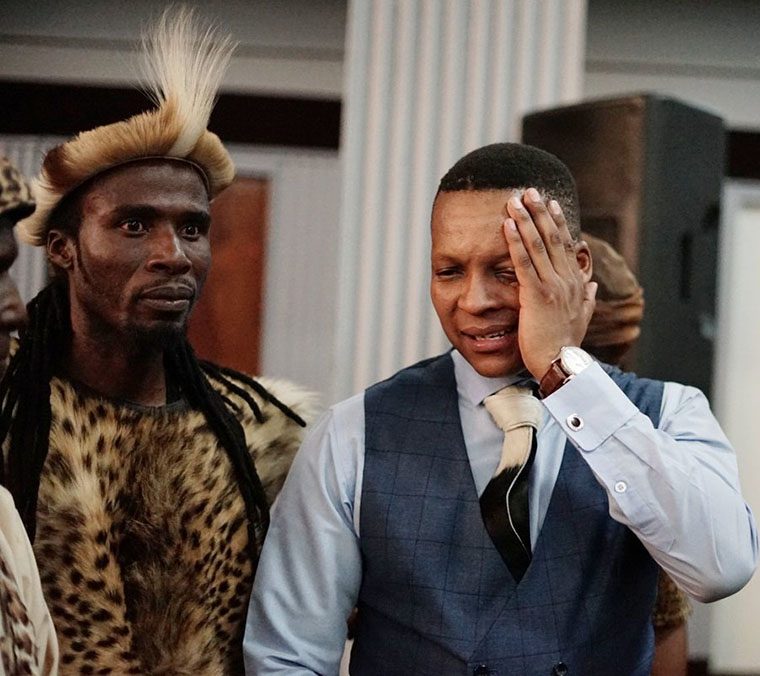
The Mzilikazi commemorations at Mhlahlandlela had to be scaled down for fear that authorities would seek to stop them for spurious reasons, the chief said.
The traditional leaders would now identify a site for the King’s home, as well as support staff.
“We had to do it this way so at least we could say the first official Bayethe! to King Bulelani Lobengula Khumalo. We’re now putting modalities in place for him to have a rural structure in place. This rural structure would be different to all rural structures, it will have chiefs inside it – we’re forming a parallel structure to the national chiefs’ council. It will operate independently,” he said.
The King would be based in South Africa for now, he added.
“He will remain there until we sort some modalities out, things like his official residence; we need staffing and all those basic nuts and bolts – things that make a monarch happen. We’ve not chosen to raise up a pauper monarch, it’s the real deal.”
The new Kind did not make a speech at the Mzilikazi commemorations but only greeted the crowds.
The commemorations were attended by members of the Khumalo family, Ibutho Lengqama and Insukamini from South Africa among other observers.
King Lobhengula, whose reign ended in 1893, was the last King of the Ndebele nation.
There were other kingdoms throughout Zimbabwe which all collapsed due to the advent of white settlers who created a republican form of government.
